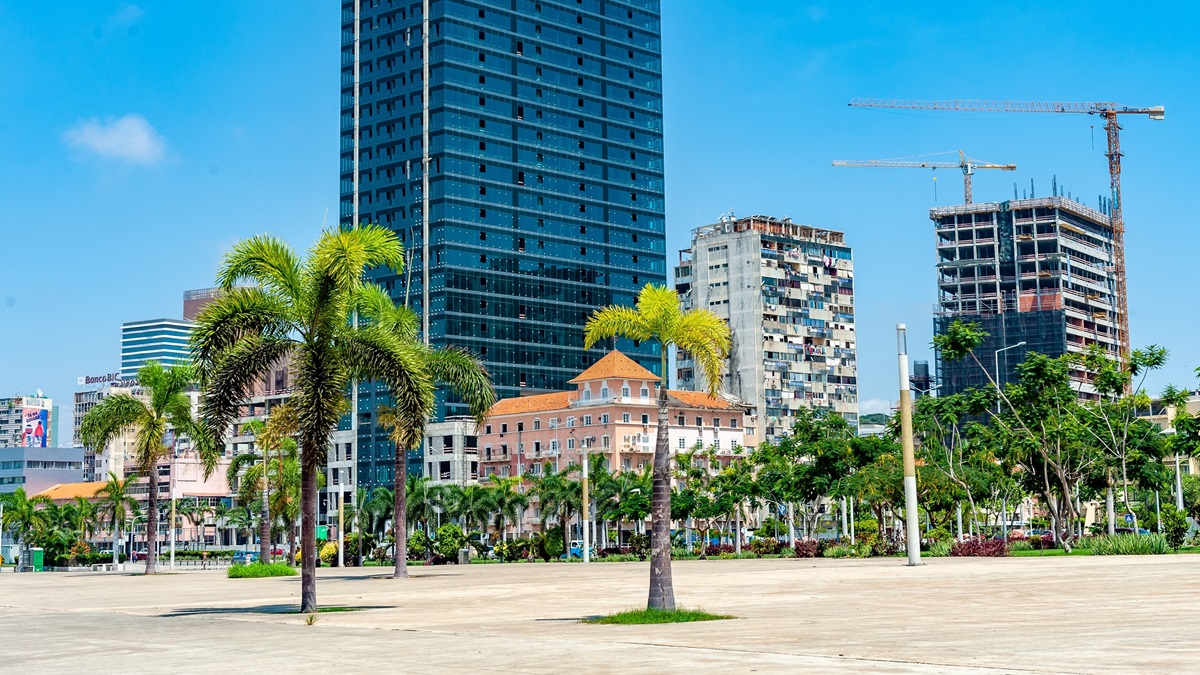A new study led by UN Trade and Development helps set the stage for major reforms to strengthen consumer protection in the African nation.
© Shutterstock/Said Mrigua | Luanda, Angola.
In a key step to strengthening consumer rights, Angola is the first Portuguese-speaking African country to have undergone a voluntary peer review of consumer protection law and policy, led by UN Trade and Development (UNCTAD) and global partners.
This milestone was marked during the 9th United Nations Conference on Competition and Consumer Protection on 8 July, underscoring Angola’s commitment to building fairer, more inclusive markets and the importance of international cooperation.
In Angola, a rapidly evolving economy of 36 million people, strengthening consumer rights is central to promoting trust in markets and leaving no one is left behind.
“UNCTAD’s peer review gives Angola the opportunity to accelerate progress on consumer protection and align with international best practices,” said Deputy Director General Wuassamba Neto of Angola’s consumer protection agency, the National Institute for Consumer Protection (INADEC).
“It helps us reflect, improve and engage in a wider dialogue with experts and our citizens.”
Power of South-South cooperation and North-South cooperation
The peer review draws on the experience of government institutions and experts from Brazil, Portugal and South Africa, all convened by UN Trade and Development, in examining Angola’s legal and institutional frameworks and offering a clear set of actionable recommendations.
The review received support through a targeted technical cooperation project with funding from Portugal, seeking to strengthen competition and consumer protection in lusophone countries across Africa and Asia.
“Portugal is proud to support this important process,” said Ambassador João Mira Gomes of Portugal to the United Nations Office at Geneva.
“It showcases how targeted funding, regional solidarity and UNCTAD’s expertise can drive systemic reform and empower consumers.”
Overview of reform priorities
Angola’s review recommends key legal and policy updates, including:
- Modernizing the current consumer protection law of 2003, given the changing dynamics in markets with the rise of e-commerce and digital services.
- Strengthening consumer rights in essential public services like water, energy and telecommunications.
- Enhancing transparency in contracts to hold businesses accountable.
Concerning institutions, the recommendations focus on:
- Upgrading the role of INADEC, with independence to lead consumer policy.
- Operationalizing Angola National Consumer Council as a platform to convene stakeholders from diverse backgrounds.
- Supporting consumer organizations with funding and training.
Additionally, the review calls for long-term education strategies, including integrating consumer rights into school curricula and increasing outreach to vulnerable communities.
This will go a long way in improving consumer literacy in Angola, where just 39% of the population has internet access and services can vary widely across 21 provinces and multiple languages.
Next steps for Angola
The voluntary peer review proposes a concrete reform agenda:
- Legal reforms to modernize consumer law and address e-commerce, vulnerable consumers and essential service contracts.
- Institutional reforms to activate multi-agency coordination, improve enforcement capacity and support consumer groups.
- Operational reforms to create a centralized consumer protection portal and develop public education campaigns.
These steps aim to align Angola’s framework with the United Nations Guidelines for Consumer Protection and drive a national culture of accountability and fairness.
As Angola moves forward, its government and partners are armed with a roadmap to implement bold reforms and mobilize resources for consumer protection.
“Angola’s decision to undergo a peer review sends a powerful message and signifies the importance of self-reflection and continuous learning,” said Acting Commissioner Hardin Ratshisusu of South Africa’s National Consumer Commission – a partner agency to the peer review process.
“It sets a precedent for Southern African countries and others on the continent to strengthen consumer protection systems through regular reviews of the effectiveness of enforcement.”
Catalyzing change through global cooperation
Voluntary peer reviews of consumer protection law and policy, led by an intergovernmental group of experts housed under UN Trade and Development, enable governments to advocate for reforms internally, backed by international recommendations and peer experiences.
As a result, participating countries often see increased visibility for consumer issues, stronger institutional mandates and more informed policymaking.
According to UN Trade and Development’s latest impact assessments, countries that have undergone voluntary peer reviews implement 61% of the recommendations within a few years, demonstrating a real shift in policy and enforcement capacities.

